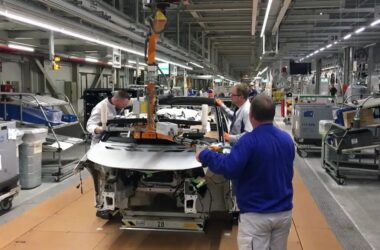U.S. President Donald Trump has announced the introduction of 25% tariffs on car imports to the United States, calling it a “Day of Liberation,” which triggered a sharp reaction in Europe.
Politico Europe published an analytical piece on how EU leadership is preparing countermeasures. German Chancellor Olaf Scholz emphasized the need to act as a “united front” against U.S. economic pressure. His statement from March 30 was quoted by Reuters.
European Central Bank President Christine Lagarde, in an interview with France Inter, stated that Trump’s tariffs could serve as a “march to independence” for Europe in defense and energy sectors. According to experts, such statements reflect the EU’s aspiration for economic self-sufficiency.
The Guardian covered a meeting between the UK Prime Minister and Finnish President Alexander Stubb at Downing Street, where they discussed the outcomes of the “Coalition of the Willing” in Paris and the prospects of strengthening ties with the EU amid U.S. trade threats.
Spanish newspaper El País highlighted the reaction of European automakers, such as Volkswagen and Stellantis, to the U.S. tariffs, which could negatively impact export performance.
According to the BBC, the tariff announcement caused volatility in financial markets: the Nasdaq 100 index initially dropped by 1.5% but later recovered. Additionally, European leaders and European Commission representatives have scheduled a visit to Uzbekistan on April 4 to participate in the first EU–Central Asia summit (PubAffairs Bruxelles).
Reuters also reported on an earthquake in Myanmar and long lines for humanitarian aid, drawing European media attention in the context of global news.
The situation surrounding U.S. tariffs remains tense, and European leaders are preparing for possible economic and political consequences.




